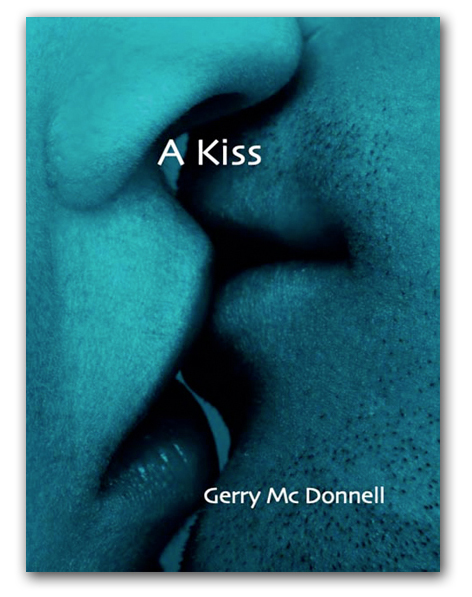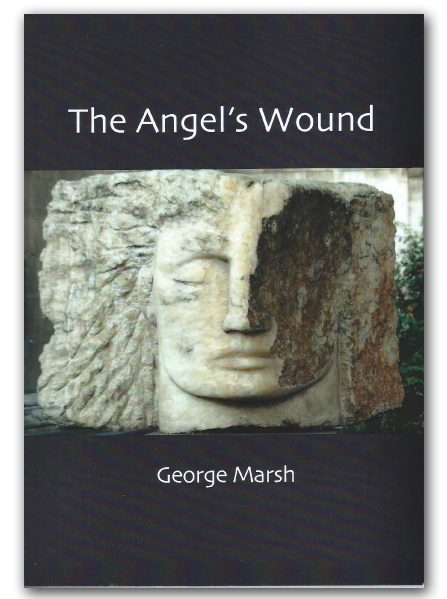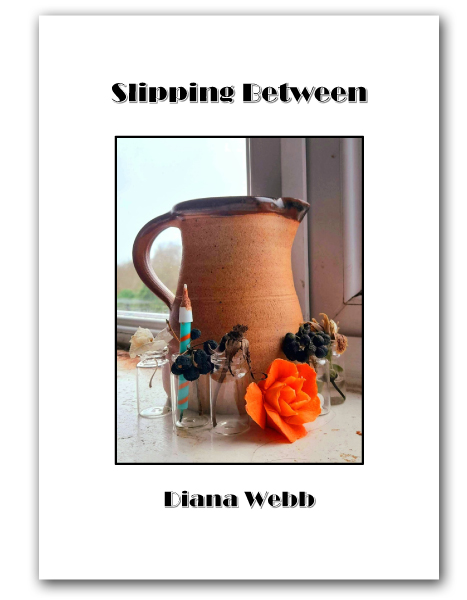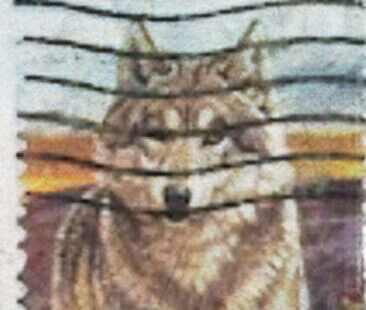Books in Brief
Overviews of collections recently received

A Kiss
by Gerry McDonnell
Alba Publishing
2022, paperback, 60 pages
€12.00
Ordering Information
A Kiss offers 35 haibun that take us into the author’s native Dublin. McDonnell mostly recounts episodes from his own life—from childhood bouts of asthma to short-lived flings (and unrequited longings) to a meditative outing to Dublin’s gentrified Portobello neighborhood during the Covid shutdown. We meet his father, a “tough, rough” baker who “preferred work and the pub to the house,” and a mother who “lavished her attention” on her son and died when he was only 17. The haibun also include narratives of encounters with old or one-time friends, ruminations about famed literary figures, and even a few reflections on local trees (the yew, the cherry blossom, and the whitethorn, his mother’s favorite). McDonnell’s voice is clear, direct, and often tender, offering small details that help to make a scene come alive, and the haiku quietly complement the prose. The book ends with a selection of 25 individual haiku and senryu. At turns wistful, humorous, and poignant, A Kiss nicely captures McDonnell’s connections to his city, its people, and his past.
Excerpt:
A Kiss
She waitressed in Captain America’s, perhaps slumming it, or perhaps posh but penniless. I was a kitchen porter there. Once, on a December night, after the late shift, I walked her home. She told me that she came from an English military family whose name was linked with General Gordon of Khartoum. However, she was glad she had come to Ireland and left her strict upbringing behind her. I told her I came from a long line of bakers. We laughed. We reached her garden flat in the plush south side of the city. Her partner greeted her with a kiss and smiled at me as he closed the door on the cold. I was being gentlemanly but also wished to kiss her wide shapely mouth. I headed home to the tree-deprived north inner city. On O’Connell Bridge I stopped to look down at the dark twisting waters of the river Liffey. I entertained the thought that I might walk her home again, if the inclement weather kept up.
one after another
on my lips
melting snowflakes

The Angel’s Wound
by George Marsh
Alba Publishing
2022, paperback, 72 pages
£12.00
Ordering Information
In his preface, George Marsh writes that a “haibun, I find, allows you to play with haiku images floating free within a prose argument. . . . The argument need not be tight and tends to ramble (I speak for myself), speculate, and wonder.” In this book, Marsh’s speculations and wonders range from a meditation on the traditions of English families inspired by sculptures at Kew Gardens (“The Angel’s Wound”) to brutally vivid depictions of “lifers” in a penitentiary (“Water”) to the subatomic particles that make up our existence (“The Higgs boson”). Marsh has a far-reaching, inquisitive mind, and he does like to “play with haiku”: only a few of the haibun take the traditional single paragraph/single haiku format. Instead, most haibun stretch over two or more pages, their haiku interspersed among the paragraphs or trailing off at end in a series. He also plays with presentation: In “Hunting dogs heard in the mist,” he ends an exploration into personality with a question-and-answer session, while the three-part “The Decline from Beauty to Meaning” is written in a multilevel list format. The haiku themselves are mix of styles, from imagistic, poetic fragments to more prosaic observations (e.g., “expressionless lips / downcast eyes, behind which, perhaps / what you might call blooming,” from “Longer than Stone, Gandhara”). And some are simply beautiful: “all I remember of her / the slow rhythm of the river / summer starlight” (from “First Kiss”).
Excerpt:
Like Us
If evolution is developing a spiral galaxy or an artichoke, say, it will get in a mess unless it finds—as it will!—the efficient sequence in which the golden section is such that the ratio of the whole to the longer is as the ratio of the longer to the shorter, enabling phyllotaxis in plants, pentagons in starfish, and endless fractalizing expansions out into the harmony of the spheres, a harmony number 1 2 3 5 8 13 21 34 55 89 … and sounded in all the tonic and dominant chords, the thirds, the fifths, the octaves. . .
Tralfamadorians
gaze at their winter stars
hearts full of wonder

Slipping Between
by Diana Webb
2023, paperback, 36 pages
£5.00
E-mail the Author to Order
This booklet offers an unusual how-to lesson in writing haibun, in which (as the author states in her preface), “a fictional character who is a haibun writer, goes through the process of coming up with the most fitting haibun she can create, as a comment on and tribute to a relationship between herself and another.” Webb invites readers to follow in writer’s practice as she picks out entries from her notebook/diary/journal, highlights phrases that might make a good a title, writes a few episodes from memory “which for her sum of the essence of the relationship,” and then conjures “various phrases and fragments which could come together to constitute a concluding haiku.” The book is divided into four sections: “A Beautiful Title,” “A Central Narrative,” “The Structure of a Haiku—phrases and fragments,” and finally “The Haibun in Question”—the culmination of an imaginative journey:
Perchance to Dream
She lifts the reproduction down from the wall, gazes deep in the glass. the other’s obsession with that work of art. Shakespeare’s Ophelia as Millais depicted her. The drowned heroine’s auburn hair floating amid the wildflowers, her eyes wide open. Details about the model a preoccupation too, to the extent they cluttered her notebooks. Word after word about the milliner who posed in a bath of water, chilled to the point it almost killed her. Even more words on how she survived, to succumb soon after to an overdose of an all too familiar Victorian potion. ‘Things have moved on since then’. She rehearses the sentence in her head as she places the frame face down. ‘Things have moved on. Yes. But not enough’.
what’s left of a pill pack
scattered on the floorboards
daisy petals
